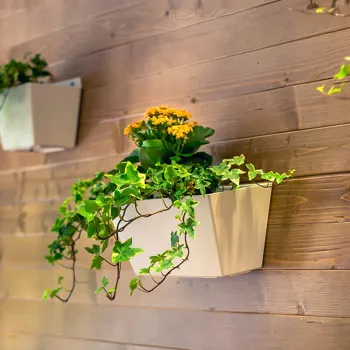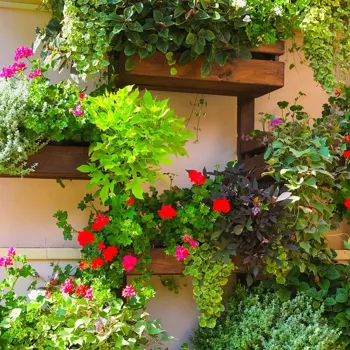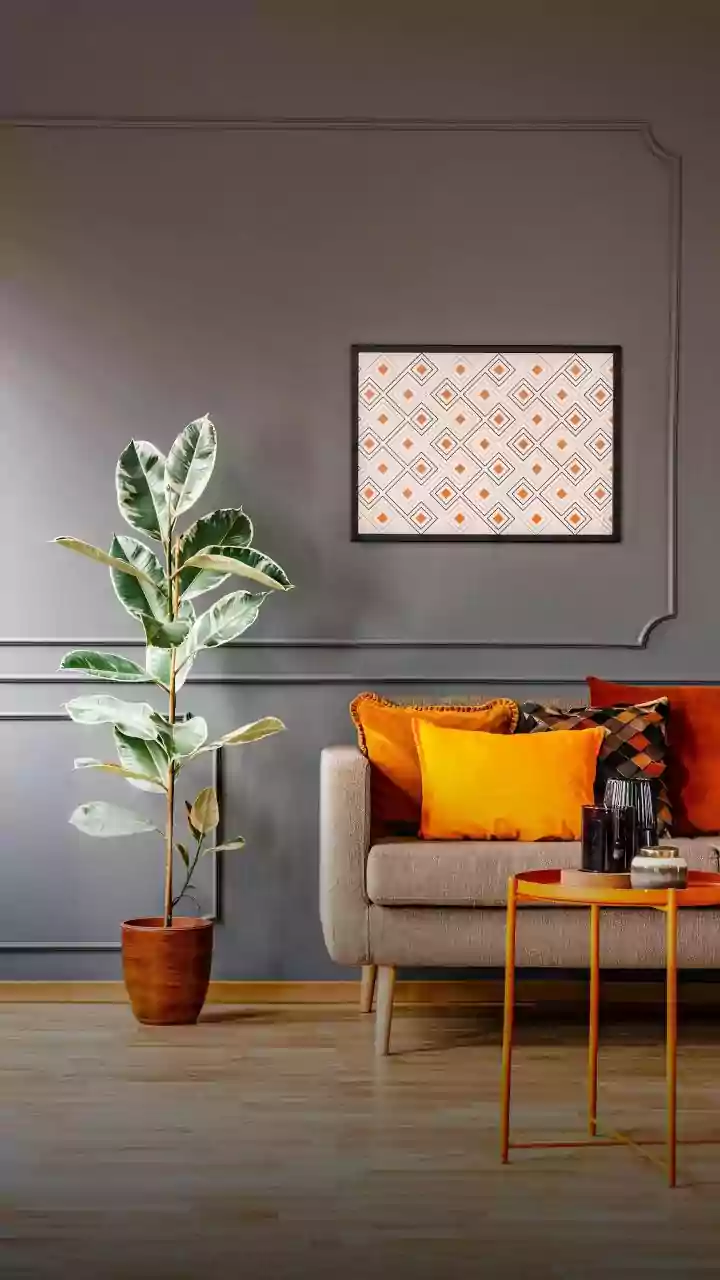Unleash the hidden potential of your urban terrace with 10 innovative gardening tips. Transform your space into a green paradise!
Incredible Gardening Tips for Urban Terrace Spaces You Never Knew Existed
Mumbai
For city dwellers yearning for a touch of green, terrace gardens are blooming into the ultimate solution. Forget endless traffic and concrete jungles; imagine stepping onto your own rooftop oasis, a vibrant space buzzing with life.
But creating a flourishing terrace garden in the heart of a bustling city isn't always a cakewalk. Space constraints, harsh weather conditions, and a lack of gardening know-how can often be discouraging. Fear not, aspiring urban gardeners!
We've compiled a list of ten incredible, lesser-known gardening tips that will revolutionize your terrace and turn it into a thriving ecosystem. These tips are tailored for the unique challenges of urban terrace spaces in India, ensuring you get the most out of your little slice of paradise.
Get ready to unleash your inner gardener and transform your terrace into a verdant haven!
Embrace vertical gardening with repurposed materials for a desi twist
Firstly, Embrace Vertical Gardening with a Desi Twist. We're not just talking about the usual climbers on walls. Think creatively! Use repurposed materials like old plastic bottles, discarded tires, or even bamboo shoots to create vertical planters.

Arrange them artistically on your terrace walls or hang them from railings to maximize space and add a unique Indian touch. Grow herbs like tulsi, mint, or coriander vertically, making them easily accessible for your daily chai or cooking.
Vertical gardens also act as natural insulators, keeping your terrace cooler during the scorching summer months. Consider installing a drip irrigation system for your vertical garden to ensure even watering and minimize water wastage, a crucial aspect of sustainable urban gardening.
This also can be done with discarded PVC pipes.
Harness the power of companion planting, Indian style
Secondly, Harness the Power of Companion Planting, Indian Style. Companion planting is an age-old technique where you grow different plants together that benefit each other. For instance, basil can deter pests that affect tomatoes, while marigolds can repel nematodes from the soil.
Incorporate traditional Indian pairings like planting lady's finger (bhindi) with onions to deter aphids, or growing chilli peppers alongside tomatoes for natural pest control. Research regional companion planting combinations specific to your area for optimal results.
This method not only minimizes the need for chemical pesticides but also enhances the overall health and productivity of your terrace garden. Another old-school trick is to use neem leaves as a natural fertilizer and pest repellent.
Crush dried neem leaves and mix them with the soil or boil them in hot water to use it as a spray.
Master lightweight container gardening for terrace gardens
Next comes, Master the Art of Container Gardening with Lightweight Alternatives. Terrace gardens often face weight restrictions, so choosing the right containers is crucial. Opt for lightweight materials like plastic or resin planters instead of heavy terracotta pots.

Alternatively, explore innovative options like grow bags made from breathable fabric. These are lighter, easier to move, and promote healthy root growth.
Fill your containers with a well-draining potting mix that includes coco peat, vermicompost, and perlite to reduce weight and improve water retention. Avoid using heavy garden soil directly in containers.
Consider using self-watering planters to simplify your watering routine, especially if you're a busy urbanite. This will prevent your terrace from being too heavy, which would otherwise be a problem. The trick will to use more organic material instead of inorganic mud.
Conserve water with rainwater harvesting and greywater recycling for sustainable terrace gardens
Fourthly, Water Wisely with Rainwater Harvesting and Greywater Recycling. Water is a precious resource, especially in urban areas. Install a simple rainwater harvesting system on your terrace to collect rainwater and use it for irrigation.
You can also recycle greywater (water from your kitchen sink or shower) for watering your plants, ensuring it is free from harsh chemicals. Use a filter to remove any large particles before using greywater.
Mulch your plants with organic materials like dried leaves or straw to reduce water evaporation. Water your plants early in the morning or late in the evening to minimize water loss due to the hot indian climate.
This not only conserves water but also reduces your water bill, making your terrace garden more sustainable and eco-friendly. It is very important to save water in Indian summer for terrace gardens.
Create microclimates on your terrace for diverse plant needs
Fifthly, Create Microclimates to Suit Diverse Plant Needs, Indian terraces can experience extreme temperatures, from scorching sun to heavy rainfall. Create microclimates on your terrace to cater to different plant needs.
Use shade cloths or strategically placed structures to protect delicate plants from the harsh sun. Group plants with similar watering and humidity requirements together. Create a windbreak using taller plants or screens to protect sensitive plants from strong winds.
You can also use a small water body, like a bird bath or a fountain, to increase humidity in a specific area. Understanding and manipulating microclimates will allow you to grow a wider variety of plants on your terrace garden.
Also put in some money plants; they help regulate humidity and moisture.
Embrace organic pest control with kitchen waste solutions
Lastly, Embrace Organic Pest Control with Kitchen Waste Solutions, Forget expensive chemical pesticides! Your kitchen waste can be a goldmine for organic pest control. Use diluted onion or garlic peels to make a natural insect repellent spray. Coffee grounds can deter slugs and snails.
Eggshells are a great source of calcium and can be crushed and added to the soil. Banana peels are rich in potassium and can be buried near plants to promote flowering. A simple solution of neem oil and water can effectively control a wide range of pests.
Composting your kitchen waste is also a great way to create nutrient-rich soil for your terrace garden. By embracing organic pest control, you'll create a healthy and sustainable ecosystem on your terrace, free from harmful chemicals.
AI Generated Content. Glance/InMobi shall have no liability for the content


















